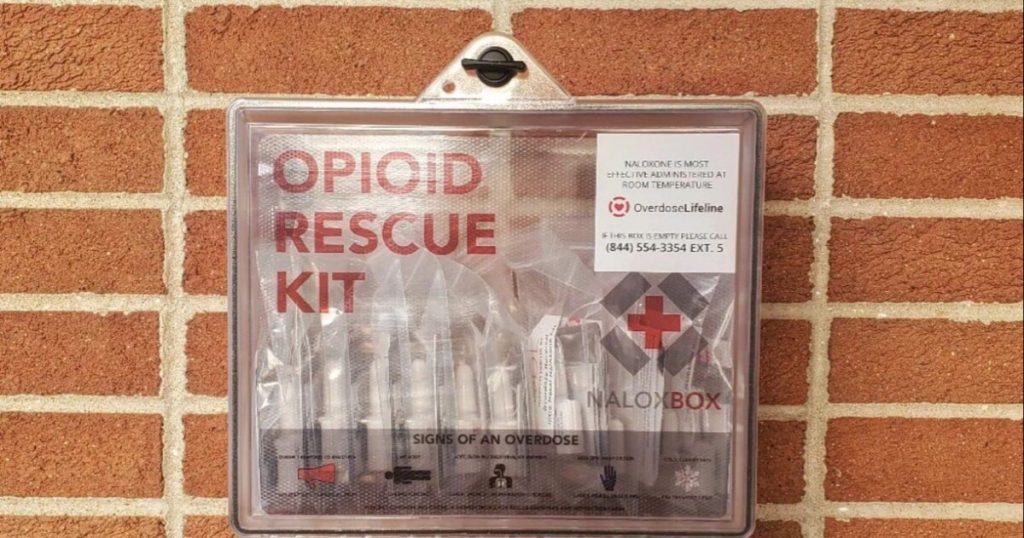Naloxone, a drug used to reverse opioid overdoses, is becoming more accessible across the Greater Binghamton area.
The Broome County Overdose Prevention Program and the Central New York Rotary collaborated to place 24 ”Naloxoboxes” around the county. Amid the national overdose epidemic, increased Naloxone access will help Broome County residents protect each other from opioid overdoses. Each box is equipped with two doses of Narcan, a brand of Naloxone, a face mask for rescue breathing — also known as mouth-to-mouth resuscitation — an instruction card and fentanyl and xylazine test strips. Users are protected by New York’s Good Samaritan law, meaning there is no legal risk of liability in case of injury or death to the overdosing person.
Naloxoboxes will be dispersed countywide [HYPERLINK: https://broomecountyny.gov/boac] at parks, government buildings, senior centers and on public transportation.
The program launched last week with funding from a grant from the Central New York Rotary Club, a service organization working together to address global humanitarian issues like polio eradication, water sanitation and environmental projects. The project’s first phase will see boxes installed beginning at the Broome County Health Department. A second phase, starting in 2025, will see boxes placed in county-operated sites and is funded by the Centers for Disease Control and Prevention’s Overdose Data to Action: LOCAL program — designed to reach areas with high overdose risk. In recent years, the Rotary Club has taken on opiate overdose.
“Actually, this started, it’s a very sad story, because it was a fellow Rotarian who lost his son,” said Lana Rouff MA ‘72, the global grants chair of Binghamton’s Rotary Club chapter. “[He] woke up one morning and [his son] was dead in his bedroom from an overdose of opioids. A lot of times you think, ‘Oh, these people can stop,’ but what happened to him was, it was a sports injury, and he needed it for the pain and, of course, he overdosed.”
Rouff said after conducting a needs assessment in the counties they were in charge of, it became clear solutions were needed to help handle overdoses. Working with health departments across multiple counties, including the Broome County Health Department, the Rotary Club funded a global grant for the Naloxoboxes.
“We really believe in harm reduction,” said Marissa Knapp ‘04, the supervising public health director at the Broome County Health Department. “My job isn’t to get people to treatment or recovery. My job is to keep people alive and to reduce the harm to them or to other people.”
After receiving the appropriate training, students can access Naloxone kits, which they can request by emailing oem@binghamton.edu or calling (607) 777-3545. Narcan is available on-site at life-safety equipment stations around campus with automated external defibrillators and Stop the Bleed kits.
Knapp said she hopes this program will contribute to further destigmatizing Naloxone use.
“I keep a kit in my car,” Knapp said. “I have one in my purse. I have one at my home. My kids have one in their backpacks. My husband has one in his car. It’s just to really saturate the community with Narcan.”



